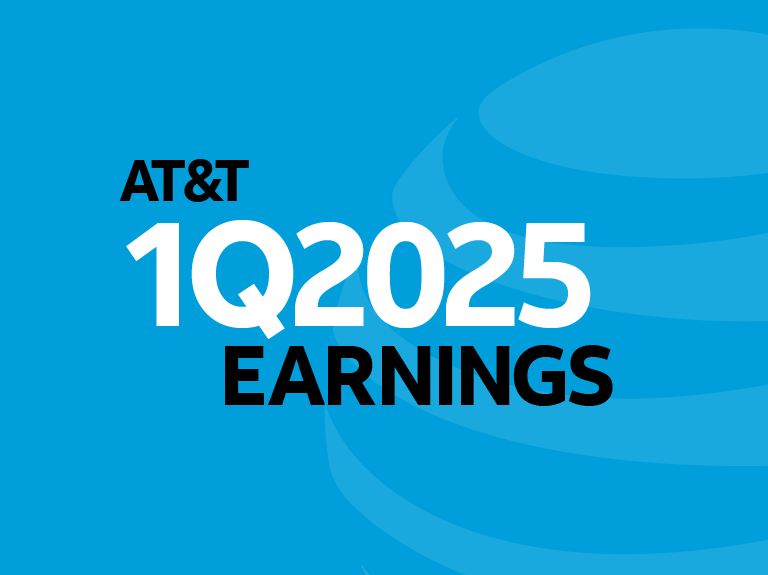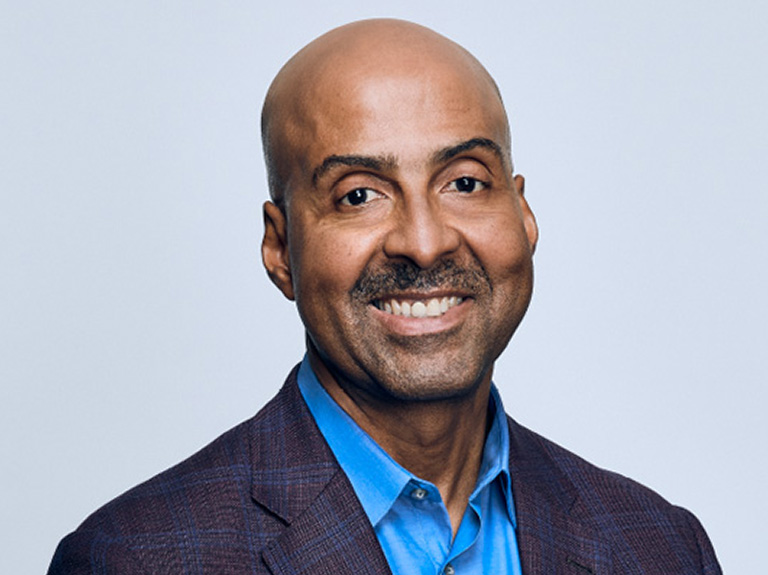AT&T & TPG to Form New Entity to Operate AT&T’s U.S. Video Unit
AT&T & TPG to Form New Entity to Operate AT&T’s U.S. Video Unit
Note: AT&T will hold a call with investors at 5 p.m. ET today. The webcast of the call and related materials will be available on AT&T’s Investor Relations website at https://investors.att.com
AT&T Inc.* (NYSE: T) and TPG Capital, the private equity platform of global alternative asset firm TPG, announced today that they have signed a definitive agreement under which the two parties will establish a new company named DIRECTV (“New DIRECTV”) that will own and operate AT&T’s U.S. video business unit consisting of the DIRECTV, AT&T TV and U-verse video services.
The transaction to separate AT&T’s U.S. video business into New DIRECTV implies an enterprise value for the new company of $16.25 billion.1 Under the terms of the transaction, New DIRECTV will be jointly governed by a board with two representatives from each of AT&T and TPG, as well as a fifth seat for the CEO, which at closing will be Bill Morrow, CEO of AT&T’s U.S. video unit. Following the close of the transaction, AT&T will own 70% of the common equity and TPG will own 30%.
AT&T and TPG believe the new structure will provide greater focus, flexibility and resources to best position the business to succeed in the long term and deliver on its commitment to customers, employees and shareholders. New DIRECTV will continue to offer a competitive video service with best-in-class content.
“This agreement aligns with our investment and operational focus on connectivity and content, and the strategic businesses that are key to growing our customer relationships across 5G wireless, fiber and HBO Max. And it supports our deliberate capital allocation commitment to invest in growth areas, sustain the dividend at current levels, focus on debt reduction and restructure or monetize non-core assets,” said AT&T CEO John Stankey. “As the pay-TV industry continues to evolve, forming a new entity with TPG to operate the U.S. video business separately provides the flexibility and dedicated management focus needed to continue meeting the needs of a high-quality customer base and managing the business for profitability. TPG is the right partner for this transaction and creating a new entity is the right way to structure and manage the video business for optimum value creation.”
“Video remains a core service for tens of millions of households. Since its launch in 1994, DIRECTV has continually evolved its product, content and service to provide customers an industry-leading video offering. As video consumption habits evolve, the new DIRECTV will continue investing in its offering to provide value to its customers, including through next-generation streaming pay-TV services,” said David Trujillo, Partner at TPG. “TPG looks forward to partnering with AT&T and new DIRECTV leadership to bring the right focus, attention and execution in support of new DIRECTV’s position as a competitive video provider for the benefit of its customers and employees.”
Transaction terms
When the transaction closes, which is expected in the second half of 2021, AT&T expects to receive from New DIRECTV $7.8 billion ($7.6 billion in cash and the assumption from AT&T of $200 million of existing DIRECTV debt). AT&T expects to use the proceeds from this transaction to reduce AT&T debt.
TPG will contribute $1.8 billion in cash to New DIRECTV in exchange for preferred units and a 30% interest in common units of New DIRECTV.
New DIRECTV has secured $6.2 billion in committed financing from its bank group, $5.8 billion of which is expected to be paid to AT&T in cash plus the assumption from AT&T of $200 million of existing DIRECTV debt.
AT&T will contribute its U.S. video business unit to the new entity in exchange for preferred units as well as a 70% interest in the common units of New DIRECTV.
Since AT&T closed the DIRECTV acquisition in 2015, the business has generated cash flows of more than $4 billion per year, and the company expects this to continue in 2021.
New DIRECTV’s CEO Morrow joined AT&T in 2019 to oversee the company’s operational transformation efforts. Morrow’s career includes successfully leading operational transformations of telecom and utility companies, including serving as CEO of Vodafone Hutchison Australia, Vodafone Europe and Pacific Gas & Electric. Morrow and a management team approved by AT&T and TPG will oversee the day-to-day operations of New DIRECTV, and Morrow will report to the New DIRECTV board.
AT&T-TPG
For more than a decade, TPG has been engaged in the evolving landscape of content creation, distribution and consumption, giving it a unique window into consumer preferences that will inform efforts to continue to improve New DIRECTV’s video service to better meet customer needs. The firm has a long history of partnering with corporate owners to invest in and carve-out non-core businesses, providing the capital and operational expertise to uncover new value and execute on long-term growth objectives.
“We look forward to working with AT&T, Bill and the entire talented team at the new DIRECTV to create a seamless customer experience through the separation of the company,” John Flynn, Principal at TPG said. “We are particularly excited by the opportunity to grow new DIRECTV’s streaming video service, leveraging the company’s leading pay-TV platform, talented labor force and large subscriber base to transition it into a leading next-generation video provider with best-in-class content and customer experience.”
Coupled with extensive experience in the video and content business, TPG is committed to ensuring that New DIRECTV’s valuable airwaves continue to serve a public benefit by continuing to provide high-quality satellite video service to consumers across the country.
After close, New DIRECTV will have a commercial agreement with AT&T to continue to offer bundled pay-TV service for AT&T’s wireless and internet customers. Additionally, AT&T and New DIRECTV will have commercial agreements in place that will give New DIRECTV video subscribers continued access to HBO Max; allow both companies to serve customers through multiple distribution channels, including retail, online, call centers and indirect sellers; and share revenues for ad inventory management and ad sales.
Background on U.S. video business
AT&T has seen improvement in its domestic video business in recent quarters. It hit its peak level of subscriber losses in 2019, and through the fourth quarter of 2020, premium video net losses had improved sequentially for five straight quarters.2 AT&T’s video subscriber churn has also continued to improve, and premium TV ARPU increased 5.1% in the fourth quarter of 2020.
In 2020, AT&T/DIRECTV advanced from #2 to tied for #1 nationally in J.D. Power’s 2020 U.S. Residential Television Service Provider Satisfaction Study*. The company also saw solid performance from AT&T TV — the company’s streaming pay-TV platform which launched in early 2020. AT&T TV offers the best of live and on-demand content and has lower subscriber acquisition costs driven by customer self-installation.
AT&T’s U.S. video unit had approximately 17.2 million subscribers as of the end of 2020. For full-year 2020, the unit had more than $28 billion in revenues, operating income of $1.7 billion, operating income margins of 6%, $4 billion in EBITDA and EBITDA margins of about 14%.3
Seamless customer transition
Once the transaction is completed, existing AT&T video subscribers will become New DIRECTV customers and will be able to keep their video service and any bundled wireless or broadband services, as well as HBO Max, plus any associated discounts.
When the transaction closes, all existing content deals, including NFL SUNDAY TICKET on DIRECTV, will be a part of New DIRECTV. Customers will continue to have access to premium content via DIRECTV and AT&T TV and will receive the same services, channel lineups and customer care experience. Customer account information, online access and billing arrangements will remain the same.
AT&T and TPG are committed to a smooth transition and seamless customer experience and will work to further improve customer service and bring new features to New DIRECTV’s video services.
Continued commitment to employees
Until closing, all employees will operate business-as-usual. When the transaction closes, it’s expected that substantially all of the employees who support AT&T’s U.S. video operations today will transition to New DIRECTV and the remainder will remain with AT&T. New DIRECTV will recognize its unionized labor force and will also assume and honor the existing collective bargaining agreements covering union-represented employees and work with the unions productively going forward. New DIRECTV will have headquarters in El Segundo, Calif. and Denver.
“We have a talented team of employees in our video operations,” said Bill Morrow, CEO-DIRECTV. “Their dedication and commitment to this business will be key to New DIRECTV’s success as we work with TPG to operate with renewed focus to deliver fantastic video services and a superior customer experience.”
Morrow began his career with AT&T as a union-represented field technician in California and has served as CEO of large union-represented workforces.
Under a separate transition services agreement, AT&T will for a period provide New DIRECTV with transition support services such as IT, supply chain, sales & service, real estate, finance and HR.
Among other items not included in New DIRECTV are AT&T’s WarnerMedia HBO Max streaming platform, Vrio (AT&T’s Latin American video operations), AT&T’s regional sports networks, U-verse network assets and AT&T’s Sky Mexico investment.
AT&T financial impact
In 2021, AT&T expects to apply the cash proceeds from the transaction toward debt reduction and does not expect a material impact to its 2021 financial guidance for:
- Consolidated revenue growth in the 1% range
- Adjusted EPS to be stable with 20204
- Gross capital investment5 in the $21 billion range with capital expenditures in the $18 billion range
- 2021 free cash flow6 in the $26 billion range, with a full-year total dividend payout ratio in the high 50’s% range.7
Going forward, the company expects that the restructuring enabled by this transaction will support improved future EBITDA growth trajectory.
Following close of the transaction, AT&T expects to deconsolidate the U.S. video operations from its consolidated results.
AT&T continues to maintain a solid cash position and a strong balance sheet. The company ended 2020 with about $10 billion in cash on hand. In addition to the $7.6 billion in cash AT&T expects to receive at the close of this transaction, the company has secured $14.7 billion in financing via a term loan credit agreement, the proceeds of which are available any time before May 29, 2021, and issued $6.1 billion of commercial paper in January 2021. The company also continues to identify opportunities to monetize non-core assets, including its Crunchyroll anime unit, which is pending sale for $1.175 billion.
In addition, the company has proactively managed its debt portfolio, reducing near-term debt maturities by about $33 billion in 2020 and lowering the overall portfolio average rate to 4.1% at the end of 2020, down 20 basis points from first-quarter 2020 levels.
The transaction is subject to customary closing conditions and to regulatory reviews.
Advisors
Goldman Sachs & Co. LLC acted as financial advisor to AT&T and Sullivan and Cromwell LLP acted as legal advisor to AT&T. Ropes and Gray provided legal advice to TPG and Credit Suisse acted as lead financial advisor to TPG in connection with the transaction. BofA Securities also acted as financial advisor to TPG.
1 Includes debt and the elimination of up to $2.5 billion in NFL SUNDAY TICKET net losses, which will be funded by AT&T.
2 Excludes the impact of Keep America Connected on third quarter 2020 net adds.
3 Our calculation of EBITDA, as presented, may differ from similarly titled measures reported by other companies. EBITDA is defined as segment operating contribution, excluding equity in net income (loss) of affiliates and depreciation and amortization. We believe EBITDA to be a relevant and useful measurement to our investors as it is part of our internal management reporting and planning processes, and it is an important metric that management uses to evaluate operating performance. EBITDA does not give effect to depreciation and amortization expenses incurred in operating contribution nor is it burdened by cash used for debt service requirements and thus does not reflect available funds for distributions, reinvestment or other discretionary uses. EBITDA margin is EBITDA divided by total revenue. For the year ended December 31, 2020, our Video business unit operating contribution was $1.7 billion and when adding back depreciation and amortization expense of $2.3 billion, EBITDA was $4 billion. EBITDA divided by $28.6 billion operating revenues of the Video business unit for the year ended December 31, 2020 resulted in an EBITDA margin of 13.9%.
4 The company expects adjustments to 2021 reported diluted EPS to include merger-related amortization in the range of $4.3 billion and other adjustments, a non-cash mark-to-market benefit plan gain/loss, and other items. Expect the mark-to-market adjustment, which is driven by interest rates and investment returns that are not reasonably estimable at this time, to be a significant item. Our 2021 EPS depends on future levels of revenues and expenses which are not reasonably estimable at this time. Accordingly, we cannot provide a reconciliation between our non-GAAP metrics and the reported GAAP metrics without unreasonable effort.
5 Gross capital investment includes capital expenditures and cash payments for vendor financing and excludes FirstNet reimbursements. In 2021, vendor financing payments are expected to be in the $2 billion range and FirstNet reimbursements are expected to be about $1 billion.
6 Free cash flow is cash from operating activities minus capital expenditures. Due to high variability and difficulty in predicting items that impact cash from operating activities and capital expenditures, the company is not able to provide a reconciliation between projected free cash flow and the most comparable GAAP metric without unreasonable effort.
7 Free cash flow total dividend payout ratio is total dividends paid divided by free cash flow. For full-year 2020, dividends paid totaled $15.0 billion.
* Tied in 2020. Study based upon consumer experience with AT&T U-verse and DIRECTV. For J.D. Power 2020 award information, visit jdpower.com/awards



